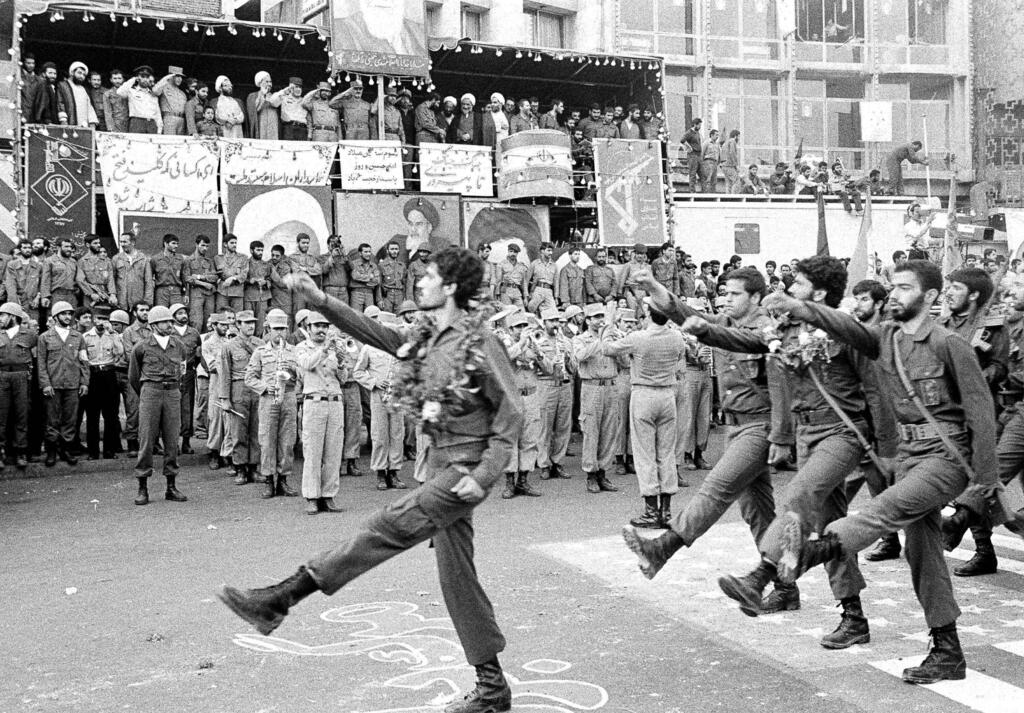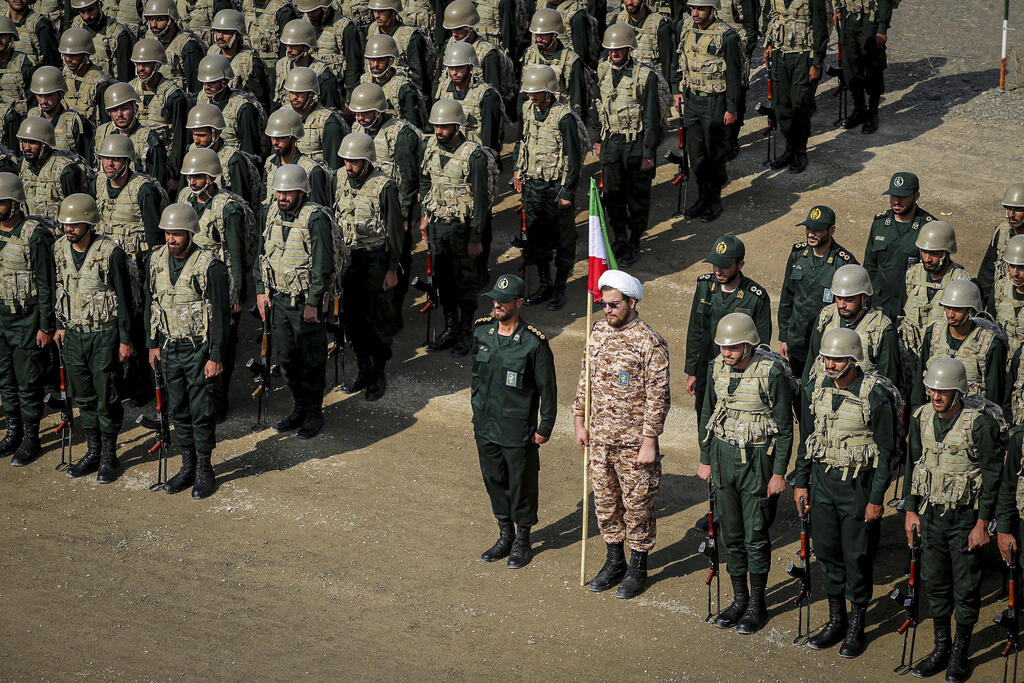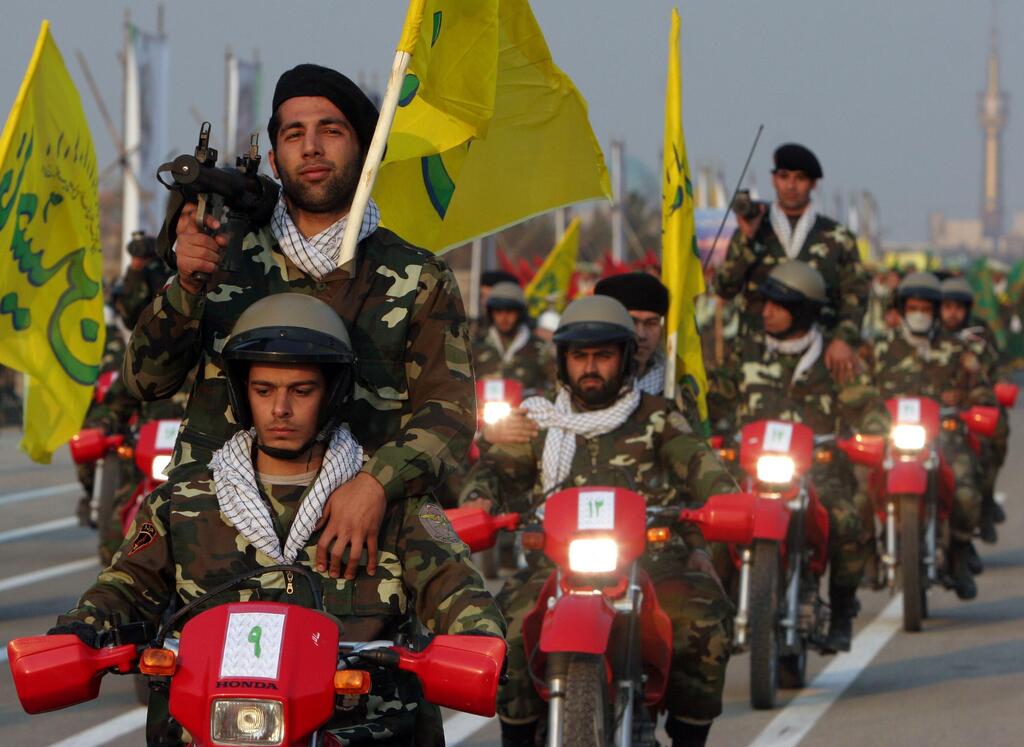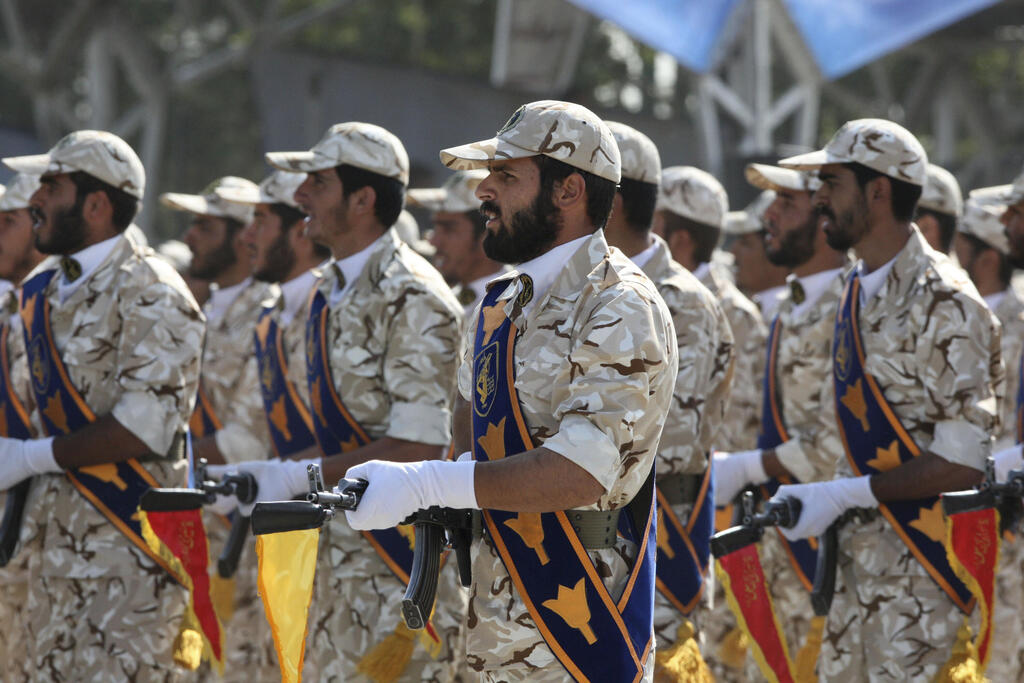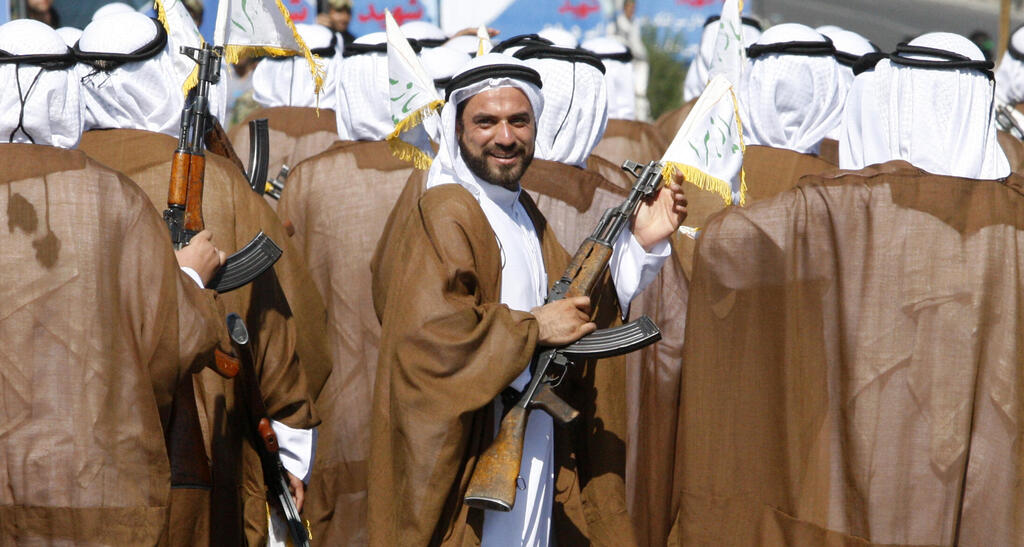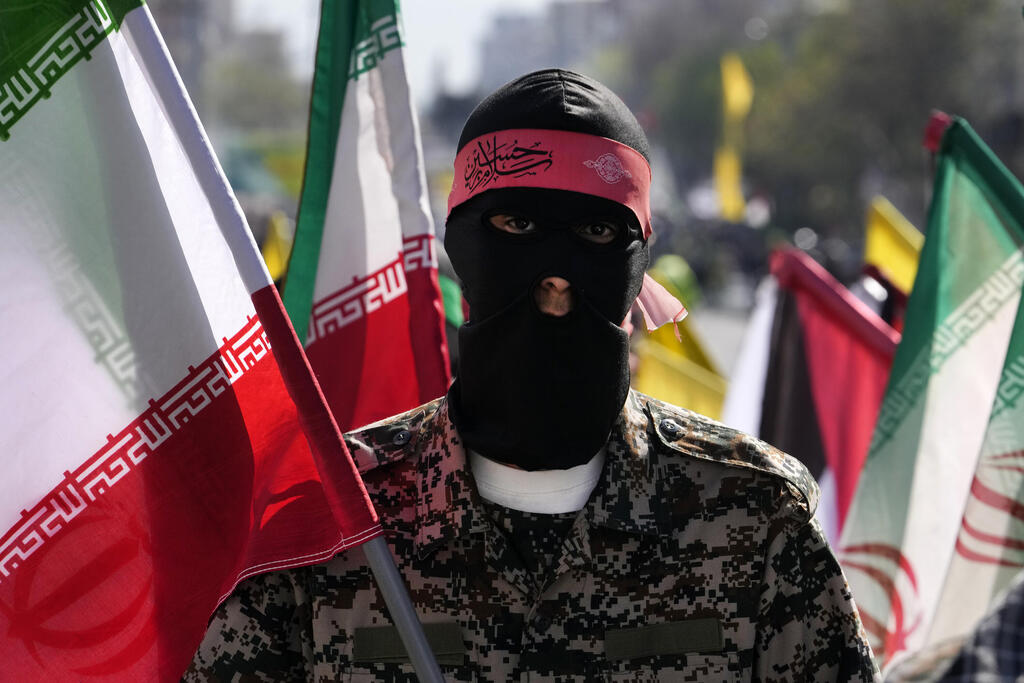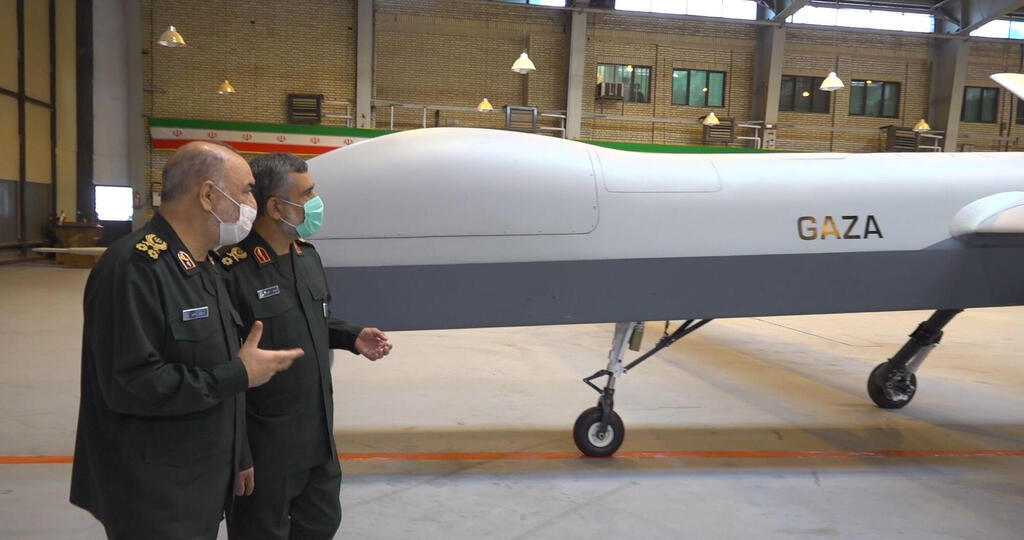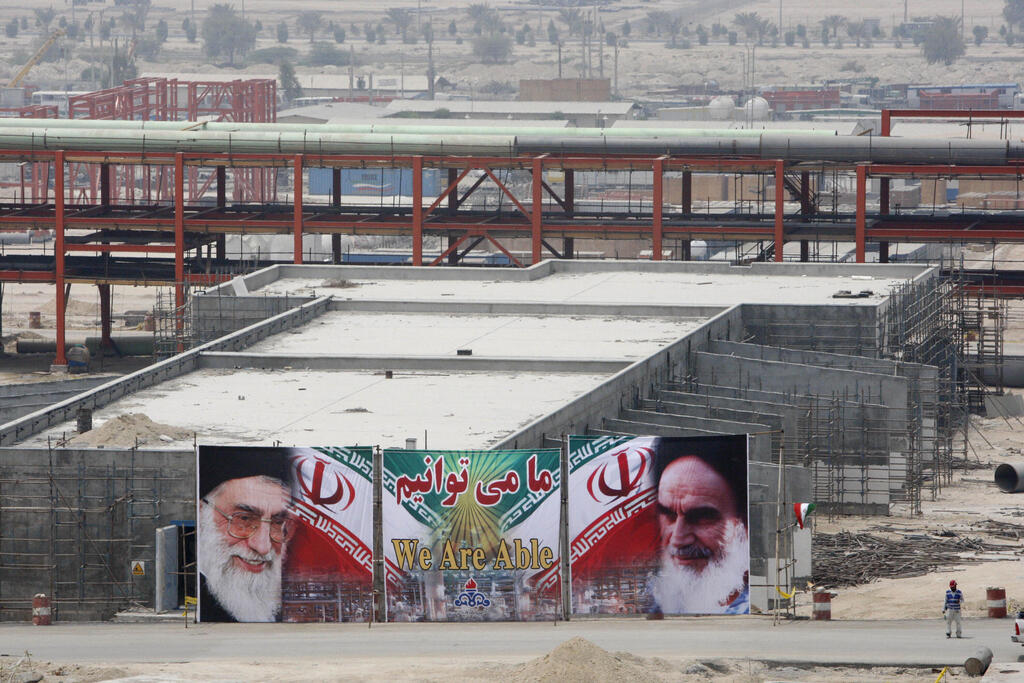Israel-Iran tensions escalated in the wake of the assassination in Damascus of senior Revolutionary Gard member, Mohammad Reza Zahedi. One more assassination of a member of the Iranian organization since the war began, ultimately led to a large-scale Iranian response – and for good reason. The Revolutionary Guard isn’t just Tehran’s old military force but a critical organization wielding great power and importance in the Ayatollah's regime.
Although the Revolutionary Guard is known in Israel mainly for its military capacity in which it invests a great deal of effort and resources, the Revolutionary Guard is active in various aspects in Iran. Although primarily in intelligence, the Revolutionary Guards personnel are also active in cultural, industrial, social, and economic affairs.
The Revolutionary Guard was founded shortly after the Islamic revolution bringing Ayatollah Ruhollah Musavi Khomeini to power. Shortly after his appointment as Supreme Leader of Iran, Khomeini issued an order to give autonomy to the newly-formed IRGC, designed to defend the revolution and the new regime from external threats, but primarily from threats from within.
Khomeini called the Revolutionary Guard an "ideological army." They’re not considered part of the Iranian military. They have their own independent command and receive instructions directly from the supreme leader. Over the years, they’ve become a central force in the country and are heavily involved in important decision-making processes, such as whether and how to respond to assassinations.
The Revolutionary Guard has units parallel to Iranian ground, air, and naval forces and even an intelligence branch parallel to that of the military. Iran currently has two armies whereas the difference between them is each organization's goals. The Iranian army aims to defend Iranian borders from external threats, while the Revolutionary Guard protects the Iranian revolution and aims to expand it beyond the country's borders.
The Iranian military and the IRGC have not always gotten along. However, the Iranian army has changed in recent years, and its leaders are almost completely loyal to the Revolutionary Guard. "There’s a feeling that they’re like their puppets. They don’t make decisions on their own and the Revolutionary Guard controls all the main systems such as nuclear matters and the special forces" explains Institute for National Security Studies (INSS) researcher, Benny Sabti. "Revolutionary Guard set up headquarters in places with domestic problems. They still view the army with suspicion."
A report in the Saudi newspaper Asharq Al-Awsat estimates that the Revolutionary Guard has over 25 thousand officers in various units, commanded by Hossein Salami, appointed by Khamenei as commander-in-chief of the Islamic Revolutionary Guard Corps in 2018.
One of the better-known Revolutionary Guard units is the Quds Force – a military espionage Revolutionary Guard force, that operates beyond Iranian borders. The Quds Force is responsible for one of the organization’s primary goals of exporting the revolution beyond Iran’s borders and designing the Middle East according to the Ayatollah’s regime’s interests.
Over the years, Revolutionary Guard personnel have been involved in various clashes across the Middle East. The Iranian elite fighters have supported Hezbollah in the civil war in Lebanon, helped Syrian President, Bashar Assad in his own civil war, and have supported the Houthis in the never-ending war in Yemen. At the same time, they fought against the Islamic State's efforts to take permanent control of areas in Syria and Iraq.
The Arab media treat the Quds Force as an elite unit of the Iranian regime, which reportedly numbers around 15,000 operatives. But when the Quds Force was founded, things were very different. The elite unit was established by merging a number of different Iranian organizations in 1990, two years after the end of the Iran-Iraq war and a year after Khamenei’s rise to power.
Alongside military activity abroad, the Revolutionary Guard aren’t shy about getting involved in internal matters stirring up in Iran. The Revolutionary Guard has a recruitment mechanism called Basiji. This is a semi-military force that, according to Al Jazeera, includes at least 90 thousand volunteers – men and women, students and adults. Some assert that the organization in fact numbers millions.
The unit’s founder, Ahamd Vahidi served as its commander for its first seven years. He was succeeded by Qasem Soleimani who had led the Quds Force in what is known as its "golden era". Over his tenure, Soleimani became more famous in the Shiite world than the force itself. He established Iran’s presence in several countries in the region, including Syria and Lebanon. He was assassinated by the United States during a visit to Iraq in 2020. He was replaced by Esmail Qaani who has been constantly speaking out against Israel in recent months.
Sabti explains that Basij members can be divided into three groups. "The first group are operatives participating in the organization year-round. They’re just like the Revolutionary Guard. The second group is the group of "informers" – people active in their free time. They mainly take part by informing about various events. The third group is people who are registered with the Basij and are not on active duty.
According to media report, Basij volunteers have helped the Ayatollah's regime address antigovernment activity in recent years. This includes assisting police and security forces to disperse popular demonstrations against the regime and conducting security, cultural, and religious missions connected to the country’s "morality police." According to Al Jazeera, the Basij volunteers are responsible for the Revolutionary Guard’s ceremonies and propaganda campaigns across the country.
Sabti himself was one of the hundreds of thousands of Basij activists. Raised in Iran, he was a member of the third group. "Once a month, I’d go to a lecture in a mosque where they’d give out cookies. Why was it important for me to go? Because you get a kind of military ID card that you use to get away from them. Although I kept saying I was part of them, they’d sometimes beat me up. They say 'If you can’t beat them, join them,' and that’s the way it was. I’d go to the mosque, listen to what they said, leave, and laugh about it.”
"They didn’t know I was Jewish. If they would have known I was Jewish, I wouldn’t have been able to join the Basij. Jews in Iran have to enlist in the army, but can’t be in the Revolutionary Guard and always remain in low positions," Sabati explains. "Iranians have actually become less antisemitic recently, while the regime is very antisemitic. It reduces its legitimacy to an extent."
The Revolutionary Guard doesn't deal just with violent matters. They also own communications companies and manage news agencies, TV channels, news, and websites in Iran, all designed to disseminate the organization’s propaganda. Examples of this could be seen in recent weeks on Iranian social media and propaganda signs in Hebrew hung up across Tehran.
The media in Tehran almost always promotes the image of the man of the Revolutionary Guard helping the small citizen in every event, not just during the war. "The regime constantly accentuates its activities at the expense of the army, Sabti said.
One way of financing the organization’s extensive activities is via the organization’s economic branch known as Khatam-al Anabi, the seal of the prophets, a familiar nickname for the Prophet Muhammad, who Islam believes to be the final prophet. According to Asharq Al-Awsat, the Revolutionary Guard owned a large network of companies in various fields, including oil, gas, and construction.
According to Arab media reports, the Revolutionary Guard’s arsenal is diverse and very advanced. One report claims the organization oversees Iran’s ballistic missile and UAV program, described by experts in the report as "the largest in the Middle East." It has been claimed that the Revolutionary Guard has UAVs, aerial defense, and electronic warfare systems.
While developing UAVs, the Iranians are lagging behind in other aerial productions. "The Iranians train on old planes, many of which have crashed during training. A passenger plane has even crashed. They’re not skilled at flying, so they use missiles and UAVs, which are passive weapons that don’t win wars," said Sabti.
"Even if they got planes from Russia, these are planes from the Far East that they don’t know how to fly. This would require changing their entire combat doctrine” said Sabti. "So, we need to take these things in proportion. It’s not about underestimating the Iranians, just taking it in proportion."
The Iranians, meanwhile, ensure the Revolutionary Guard’s military capabilities get good PR. This involves showcasing military exercises and staging the organization’s parades. These pictures form part of the psychological warfare the Revolutionary Guard is waging both internally and externally.
As this isn’t Iran’s official army, it’s easier for countries across the world to define it as a terrorist organization and various entities have already done so. The United States, for example, designated the Revolutionary Guard as a terrorist organization in 2019 and the European Union imposed sanctions on members of the Revolutionary Guard. However, Israeli calls to Germany and Britain to declare the Revolutionary Guard a terrorist organization and impose sanctions on the Iranian missile project, remain unheeded.



